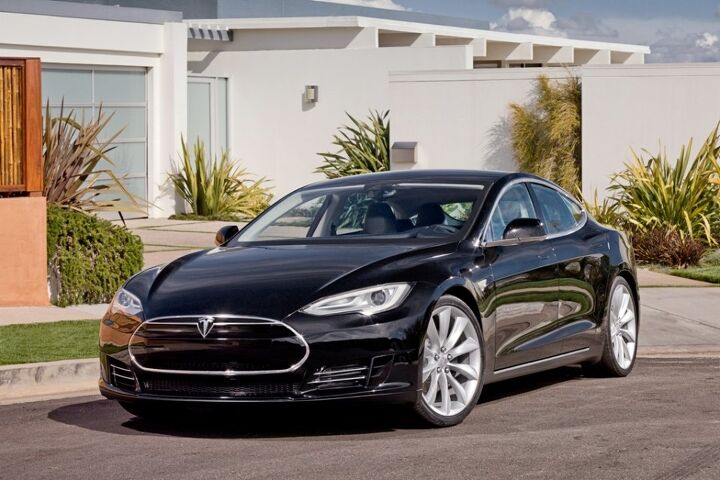Tesla Using Customer Deposits To Finance Operations
An article in the New York Times Dealbook blog claims that Tesla is using their customer deposits on upcoming models as a major source of cash to finance operations.
The article states that
Those loans, as we know from Fisker’s trials and tribulations, are rather fickle and are not a reliable source of incoming for a struggling “green” automaker. While customers generally put down about $5,000 to reserve a Model S, deposits for customized cars can run much higher (one interviewee in the article put down $40,000) – and customers may be unable to get back their money if Tesla tanks.
Tesla apparently does not put their customer deposits aside, and uses the money to finance their operations. If the company goes bust, customers will have to wait until other major creditors, like the federal government, get paid. Customers have yet to sign formal purchase agreements, though that will apparently be happening soon.
Washington state is so far the only location where Tesla uses segregated accounts to hold customers money. California, by far Tesla’s biggest market, does not require this. Tesla has collected about $61 million in deposits in 2011, up from $5 million in 2010. While Tesla’s enthusiastic customer base has no problem forking over cold, hard cash (significant sums, at that) to reserve one of the so-far unreleased models, the idea of it being largely unaccountable once received by Tesla seems a little disconcerting, especially in light of the volatile nature of the “green technology” business and Tesla’s track record for releasing new product.
More by Derek Kreindler
Latest Car Reviews
Read moreLatest Product Reviews
Read moreRecent Comments
- 3-On-The-Tree Alan, I was an Apache pilot and after my second back surgery I was medically boarded off of flying status due to vibrations, climbing on and off aircraft, so I was given the choice of getting out or re-branching so I switched to Military Intel. Yes your right if you can’t perform your out doesn’t matter if your at 17 years. Dad always said your just a number, he was a retired command master chief 25 years.
- ToolGuy "Note that those vehicles are in direct competition with models Rivian sells"• I predict that we are about to hear why this statement may not be exactly true
- ToolGuy From the relevant Haynes Repair Manual:"Caution: The 4.6L models require a special tool to extract the water pump from the coolant crossover housing. This special tool is expensive and the removal procedure is difficult. Have the water pump replaced by a dealer service department or other qualified automotive repair facility if the tool is not available."One version of the tool is Lisle 14440; I paid $10.82 (less 5% discount, plus shipping).You can see why I never attempt my own maintenance or repairs. 😉
- Dave M. IMO this was the last of the solidly built MBs. Yes, they had the environmentally friendly disintegrating wiring harness, but besides that the mechanicals are pretty solid. I just bought my "forever" car (last new daily driver that'll ease me into retirement), but a 2015-16 E Class sedan is on my bucket list for future purchase. Beautiful design....
- Rochester After years of self-driving being in the news, I still don't understand the psychology behind it. Not only don't I want this, but I find the idea absurd.


































Comments
Join the conversation
When I put down $300 to order a $15,000 Chevy (in '93) wasnt it kind of the same thing? I'm sure the dealer didnt escrow the money and if they went bust before the car was delivered, I would have been out the money. Granted, this is not an identical situation, in that the chance that GM wouldnt build my truck was essentially zero, but the financial aspect is the same.
The people buying these cars have more than enough money to feel comfortable risking a $5000 deposit. These cars *start* at 57K but will average much higher, especially early units since Tesla is delivering the more expensive vehicles first. Someone buying a $75,000 car is likely in a financial situation where they wouldn't be too distraught losing a $5000 deposit. I know someone who plunked down a deposit for one and they're a single person making a low six figure income, they might not be a millionaire (yet) but they're clearly financially comfortable enough that losing $5000 wouldn't be the end of the world. Of course the person I know ended up retracting their deposit (without issue) to go lease a Volt to go electric ASAP (he loves the Volt btw, though I think a lot of that has to do with the fact that his employer installed special reserved parking spots with electric chargers so you automatically get a sweet parking spot and pay nothing for fuel if you go electric). And as for Tesla, I wouldn't worry too much about their finances. Toyota felt comfortable enough with them to blow $100 million so it's not like they're some fly by night operation.